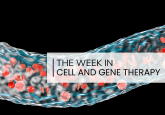Cell therapy weekly: Mayo Clinic finds disparity in the quality of genomic data across racial groups

This week: Mayo Clinic finds disparity in the quality of genomic data across racial groups, Pandorum and Wipro enter strategic partnership to utilize AI in advanced therapeutics and FDA grant Myrtelle fast track, rare pediatric disease and orphan drug designations for Canavan disease gene therapy.
The news highlights:
Mayo Clinic finds disparity in the quality of genomic data across racial groups
A recent study at Mayo Clinic (CA, USA), published in the Journal of the National Cancer Institute, has revealed differences in the quality of genomic data among racial groups in one of the largest cancer research datasets. The Cancer Genome Atlas dataset was found to have lower quality genomic sequencing data in Black patients and patients with African ancestry, reflecting the underrepresentation of minority groups in clinical and health research. Mayo Clinic’s findings have drawn light upon a disparity that has historically had serious repercussions for medical science, limiting the validity and generalizability of research that fails to represent the full range of human genetic diversity.
“We found germline and tumor exomes from Black patients were sequenced at a significantly lower depth in six out of the seven cancers we studied,” commented Yan Asmann, senior author of the study and bioinformatician at Mayo Clinic. “Lower sequencing depths of tumor and germline exomes likely resulted in less-complete data, under-detection of germline variants and somatic mutations, and inferior variant quality among patients with African ancestry.”
Pandorum and Wipro enter strategic partnership to utilize AI in advanced therapeutics
Pandorum Technologies (CA, USA), a tissue engineering and regenerative medicine biotech, has partnered with Wipro Ltd (Bangalore, India), a global IT, business and consulting process services company. The collaboration aims to shorten time-to-market and maximize patient outcome during research, development and clinical trials of regenerative medicine. AI technology will enable the improved efficacy of therapeutics and clinical study design through the application of advanced algorithms, which will also provide insight into the potential outcomes of specific formulations. The partners each bring strengths to the table, melding Wipro Holmes’ ability to derive insights from phenotypes, genotypes and clinical progression assessments with Pandorum’s knowledge of regenerative medicine.
“We’re living in a time of unprecedented progress in biology, data science and machine learning,” stated Tuhin Bhowmick, Co-founder & Chief Executive Officer of Pandorum. “We are building a framework to converge these three fields, in order to harness the potential of tissue reprogramming to the fullest and address global unmet clinical needs.”
FDA grant Myrtelle fast track, rare pediatric disease and orphan drug designations for Canavan disease gene therapy
Myrtelle, Inc. (MA, USA), a clinical-stage gene therapy company focused on the treatment of neurological disease, has received FDA fast track, rare pediatric disease and orphan drug designations for its treatment of Canavan disease. The fatal disease causes progressive damage to nerve cells and loss of white matter in the brain, caused by the deficiency of the enzyme aminoacyclase 2. Myelin production, bioenergetics and brain health are all impacted by Canavan disease, due to mutations in the Aspartoacyclase gene preventing metabolism of the neurochemical N-Acetylaspartate. Myrtelle’s clinical stage gene therapy, rAAV-Olig001-ASPA, utilizes recombinant adeno-associated virus vectors and directly targets oligodendrocytes in the brain to restore function of the Aspartoacyclase gene and its enzyme. This aims to support myelination in treatment of the disease.
“FDA’s decision to grant these designations for our investigational gene therapy utilizing rAAV-Olig001-ASPA aligns with our mission to provide treatments for patients where few if any options exist and highlights the urgency of developing a treatment for patients with Canavan disease, a devastating disease of young children which results in short life expectancy,” remarked Nancy Barone Kribbs, Senior Vice President of Regulatory Affairs at Myrtelle Inc.
You might also like:





